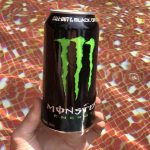Last Updated on 3 months by Francis
Pre-workout supplements are a popular choice for individuals looking to boost their energy levels and maximize their exercise performance. However, have you ever wondered if these supplements can have an impact on your digestion? In this article, we will explore the potential effects of pre-workout supplements on your digestive system and help you make an informed decision about their use.
Contents
Key Takeaways:
- Pre-workout supplements may cause digestive issues such as bloating, nausea, and diarrhea.
- Individuals may experience increased bowel movements or changes in regularity after consuming pre-workout supplements.
- Certain ingredients in pre-workout supplements, like caffeine and sodium bicarbonate, can potentially contribute to gastrointestinal distress.
- It is important to consider the potential side effects and individual tolerance before incorporating pre-workout supplements into your routine.
- Exploring natural alternatives can provide a safer option to enhance energy levels and performance during exercise.
Side Effects of Pre-Workout Supplements

If you’re considering using pre-workout supplements, it’s essential to be aware of the potential side effects they can have. While these supplements can provide an energy boost and enhance performance, they may also come with some drawbacks.
One of the main negative effects of pre-workout supplements is the potential for digestive issues. Some individuals may experience bloating, nausea, or even diarrhea after taking these supplements. This can be attributed to certain ingredients like magnesium, sodium bicarbonate, and caffeine, which can irritate the digestive system.
Another side effect of pre-workout supplements is water retention. Supplements containing creatine, a popular ingredient for improving muscle strength and performance, can cause bloating and fluid retention. This can lead to a temporary increase in body weight and a feeling of being “puffy” or swollen.
Headaches are another common side effect associated with pre-workout supplements. Ingredients like citrulline, which is often used to improve blood flow and enhance endurance, can sometimes trigger headaches in certain individuals. If you’re prone to migraines or sensitive to changes in blood flow, you may be more likely to experience this side effect.
Some people may also feel jittery or experience restlessness after taking pre-workout supplements. This is often attributed to the high caffeine content found in many of these products. While caffeine can provide an energy boost, excessive amounts can cause feelings of anxiety, rapid heartbeat, and even insomnia.
It’s important to note that the severity and frequency of these side effects can vary from person to person. Factors such as individual tolerance, dosage, and specific ingredients play a role in determining how someone may react to pre-workout supplements. It’s always a good idea to start with a lower dose and gradually increase it to assess your body’s response.
Before incorporating pre-workout supplements into your fitness routine, it’s crucial to evaluate the potential risks and benefits. While these supplements can provide a temporary energy boost and improved performance, it’s important to weigh these advantages against the possible side effects.
Remember, pre-workout supplements are not essential for achieving your fitness goals. It’s possible to improve energy levels and performance through other means, such as proper nutrition, hydration, and quality sleep. Always listen to your body and make informed decisions about your supplementation.
In the next section, we’ll dive deeper into the jittery feeling that some individuals may experience after taking pre-workout supplements. Stay tuned!
Jittery Feeling After Taking Pre-Workout

Caffeine is a common ingredient found in many pre-workout supplements. While it can provide a much-needed energy boost, it may also cause some unwanted side effects, such as pre-workout jitters, increased heart rate, and restlessness.
The stimulant properties of caffeine can stimulate the central nervous system, leading to these sensations. It can make you feel alert and focused, but it may also induce feelings of nervousness and restlessness.
If you experience pre-workout jitters or restlessness after taking a pre-workout supplement, there are a few steps you can take to alleviate these side effects. Firstly, consider opting for pre-workout supplements with lower caffeine content. This can help reduce the intensity of the jittery feeling. Additionally, gradually increasing the dosage of caffeine in your pre-workout supplement can help your body adjust to its effects, potentially minimizing the restlessness.
The Role of Caffeine in Pre-Workout Supplements
“Caffeine is a popular ingredient in pre-workout supplements due to its ability to provide a quick burst of energy and increase focus. However, it’s important to be mindful of its potential side effects on the body.”
It’s essential to note that individual tolerance to caffeine can vary greatly. What may cause pre-workout jitters in one person may not have the same effect on another. It’s crucial to listen to your body and adjust your pre-workout routine accordingly.
Remember, while caffeine can be beneficial for boosting energy and enhancing performance, it’s important to consume it in moderation. Excessive caffeine intake can lead to other side effects, such as increased heart rate, anxiety, and difficulty sleeping.
Stay aware of your caffeine intake from all sources, including pre-workout supplements, beverages like coffee or energy drinks, and even certain foods. By managing your caffeine intake effectively and finding the right balance, you can enjoy the benefits of a pre-workout supplement without experiencing excessive restlessness or pre-workout jitters.
| Common Side Effects of Caffeine | How to Manage Them |
|---|---|
| Pre-workout jitters | Opt for pre-workout supplements with lower caffeine content |
| Increased heart rate | Gradually increase caffeine dosage or reduce overall caffeine intake |
| Restlessness | Listen to your body’s signals and adjust caffeine dosage accordingly |
Understanding how caffeine affects your body and finding the right balance is essential for a positive pre-workout experience. By monitoring your caffeine intake and making adjustments when necessary, you can minimize the risk of experiencing restlessness and pre-workout jitters while reaping the benefits of enhanced energy and focus during your workouts.
Water Retention from Pre-Workout

When it comes to pre-workout supplements, one common concern is the potential for water retention and bloating. This issue can be attributed to the presence of creatine in some pre-workout formulas. Creatine is known for its ability to draw water into the muscles, which can result in temporary weight gain and a feeling of bloating.
The effects of water retention from pre-workout supplements can vary among individuals. Some may experience minimal bloating or weight gain, while others may find it more pronounced. It’s important to remember that this is a temporary effect and not a permanent increase in body weight.
Proper dosing and hydration are key to managing water retention from pre-workout supplements. It’s essential to follow the recommended dosage instructions provided by the manufacturer. Taking more than the recommended amount will not provide additional benefits and may increase the likelihood of water retention and bloating.
Additionally, staying hydrated throughout your workout and the rest of the day can help minimize water retention. Proper hydration allows your body to regulate fluid balance more effectively, reducing the potential for bloating. Make sure to drink enough water before, during, and after your workout to support optimal hydration.
The Role of Creatine
Creatine is a naturally occurring compound found in our bodies, primarily in the muscles. It plays a crucial role in energy production during high-intensity exercise. By supplementing with creatine, individuals may experience enhanced strength, power, and overall exercise performance.
However, one thing to keep in mind is that the initial weight gain associated with creatine supplementation is primarily due to water retention, not an actual increase in muscle mass. This temporary water weight may subside after ceasing creatine supplementation.
| Effects of Creatine in Pre-Workout | Solutions |
|---|---|
| Water retention and bloating |
|
| Temporary weight gain |
|
Managing water retention from pre-workout supplements is possible with the right approach. By following the recommended dosage guidelines, staying hydrated, and understanding that the initial weight gain is temporary, you can minimize any discomfort associated with bloating. Remember, everyone’s response to pre-workout supplements may vary, so it’s important to listen to your body and make adjustments as needed.
Tingling Sensation and Skin Flushing from Pre-Workout
Beta alanine and niacin are common ingredients in pre-workout supplements that can cause tingling sensations and skin flushing, respectively. While these side effects are usually harmless, they may be uncomfortable for some individuals.
Beta alanine is an amino acid that helps improve exercise performance. When taken in pre-workout supplements, it can cause a tingling sensation, known as paresthesia, on the skin. This sensation is temporary and typically fades within a few minutes.
Niacin, also known as vitamin B3, is another ingredient found in pre-workout supplements. It is involved in energy metabolism and can cause skin flushing due to its ability to dilate blood vessels. This flushing sensation may result in redness and warmth in the face, neck, and chest.
To minimize these effects, you can try dividing the lower daily dose of beta alanine throughout the day instead of taking it all at once. This can help reduce the intensity of the tingling sensation.
For niacin-induced skin flushing, gradually reducing the dosage of niacin or choosing pre-workout supplements with lower niacin content can help alleviate this side effect.
It’s important to note that these side effects are temporary and generally subside as the body becomes more accustomed to the ingredients. If you experience any severe or prolonged side effects, it is recommended to consult with a healthcare professional.
| Side Effect | Prevalence | Solution |
|---|---|---|
| Tingling sensation from beta alanine | Common | Divide the lower daily dose throughout the day |
| Skin flushing from niacin | Common | Reduce niacin dosage or choose supplements with lower niacin content |
Digestive Upset from Pre-Workout

Pre-workout supplements are known for their ability to enhance performance and energy levels during exercise. However, some individuals may experience digestive issues as a side effect. Several ingredients commonly found in pre-workout supplements can contribute to digestive upset, including sodium bicarbonate, magnesium, and caffeine.
Sodium Bicarbonate:
Sodium bicarbonate, also known as baking soda, is sometimes included in pre-workout supplements to help buffer lactic acid and reduce muscle fatigue. However, consuming sodium bicarbonate in large amounts can lead to digestive issues like bloating and stomach discomfort. It is important to note that individuals with underlying digestive conditions may be more sensitive to the effects of sodium bicarbonate.
Magnesium:
Magnesium is an essential mineral that plays a crucial role in numerous bodily functions, including muscle contraction and relaxation. While magnesium can provide benefits for exercise performance, excessive intake may cause digestive disturbances such as diarrhea and abdominal cramps. It is essential to follow recommended dosage guidelines and consult with a healthcare professional before adding magnesium-rich pre-workout supplements to your routine.
Caffeine:
Caffeine is a well-known stimulant that can provide a boost of energy and enhance focus during workouts. However, for some individuals, high doses of caffeine can lead to stomach upset, including symptoms like nausea and acid reflux. Additionally, caffeine acts as a diuretic, which can contribute to dehydration if not properly hydrated while consuming caffeine-containing pre-workout supplements.
To minimize the risk of digestive upset from pre-workout supplements, it is important to:
- Ensure proper hydration before, during, and after exercise.
- Mix pre-workout supplements with an adequate amount of water to aid in digestion.
- Pay attention to individual tolerance levels and make adjustments as necessary.
Remember, every individual reacts differently to pre-workout supplements, and it’s crucial to listen to your body’s signals. If you experience severe or persistent digestive issues, it is recommended to consult with a healthcare professional.
| Ingredient | Potential Digestive Side Effects |
|---|---|
| Sodium Bicarbonate | Bloating, stomach discomfort |
| Magnesium | Diarrhea, abdominal cramps |
| Caffeine | Nausea, acid reflux |
Headaches from Pre-Workout
Pre-workout supplements are designed to enhance performance and energy levels during exercise. However, some individuals may experience headaches as a side effect. One ingredient commonly found in pre-workout supplements that can potentially cause headaches is citrulline.
Citrulline is an amino acid that is often included in pre-workout formulas due to its ability to increase blood flow. While this can be beneficial for improving oxygen and nutrient delivery to the muscles, it can also lead to headaches in some individuals.
To reduce the likelihood of experiencing headaches from pre-workout supplements, there are a few strategies you can try:
- Lower the dosage: If you’re prone to headaches, consider reducing the amount of pre-workout supplement you take. Start with a lower dosage and gradually increase it, monitoring how your body responds. This can help you find the right balance for optimal performance without triggering headaches.
- Choose citrulline-free options: If headaches persist even with lower dosages, consider opting for pre-workout supplements that do not contain citrulline. There are plenty of alternatives available in the market that can still provide the energy and focus you need without the risk of headaches.
Remember, everyone’s body reacts differently to pre-workout supplements, and what works for one person may not work for another. It’s essential to listen to your body and make adjustments accordingly. If headaches persist or worsen, it’s a good idea to consult with a healthcare professional or a registered dietitian to rule out any underlying issues.
Other Considerations:
Headaches from pre-workout may also be influenced by factors such as dehydration, insufficient sleep, or existing medical conditions. It’s important to address these factors alongside adjusting the use of pre-workout supplements to effectively manage headaches.
By being mindful of your body’s response and making necessary changes, you can find a pre-workout routine that maximizes your performance without the discomfort of headaches.
| Strategies to Reduce Headaches from Pre-Workout |
|---|
| Lower the dosage |
| Choose citrulline-free options |
Evaluating the Use of Pre-Workout Supplements
In the quest for improved fitness and exercise performance, many individuals turn to pre-workout supplements. These products are designed to enhance energy levels, focus, and endurance during workouts. While pre-workout supplements can offer potential benefits, it’s essential to evaluate their use and consider the pros and cons before incorporating them into your fitness routine.
Benefits of Pre-Workout Supplements
Pre-workout supplements have gained popularity for their ability to provide an energy boost and enhance performance. Some potential benefits of using pre-workout supplements include:
- Increased energy levels: Pre-workout supplements often contain ingredients like caffeine or stimulants, which can help combat exercise-induced fatigue and improve alertness.
- Improved focus and mental clarity: Certain ingredients, such as amino acids and herbal extracts, can support cognitive function, helping you stay focused and in the zone during your workouts.
- Enhanced endurance: Ingredients like beta-alanine or creatine may help delay muscle fatigue and improve overall endurance, allowing you to push harder and train longer.
Risks and Considerations
While pre-workout supplements can offer benefits, they also come with potential risks and considerations that should be taken into account:
- Possible side effects: Some individuals may experience adverse effects such as digestive issues, jitters, headaches, or allergic reactions when taking pre-workout supplements.
- Individual tolerance: Everyone reacts differently to pre-workout supplements, and it’s essential to assess your own tolerance and sensitivity to the ingredients before regular use.
- Quality and safety: The supplement industry is not regulated as rigorously as pharmaceuticals, so it’s important to choose reputable brands and ensure that the products undergo third-party testing for quality and purity.
Evaluating the use of pre-workout supplements should involve considering your individual health status, goals, and preferences. Consulting with a healthcare or sports nutrition professional can provide personalized guidance and help you make an informed decision.
Natural Alternatives to Pre-Workout Supplements
Looking for natural alternatives to enhance your energy levels and performance? Instead of relying on pre-workout supplements, consider incorporating these natural options into your routine:
- Caffeine Alternatives: Instead of relying on synthetic caffeine found in pre-workout supplements, try consuming natural sources of caffeine like yerba mate. Not only does yerba mate provide a natural energy boost, but it also contains antioxidants that can support your overall well-being.
- Medicinal Mushrooms: Medicinal mushrooms such as cordyceps and reishi have been used for centuries to support energy, endurance, and overall athletic performance. These mushrooms contain various bioactive compounds that can enhance oxygen utilization, improve endurance, and support recovery.
- Adaptogenic Herbs: Holy basil, also known as tulsi, is an adaptogenic herb that can help improve focus and reduce stress. It has been traditionally used in Ayurvedic medicine for its ability to support mental clarity and physical performance.
- MCT Oil for Energy: Medium-chain triglyceride (MCT) oil is a type of fat that is quickly absorbed by the body and converted into energy. Adding MCT oil to your pre-workout routine can provide a rapid source of energy and support endurance during exercise.
By incorporating these natural alternatives into your routine, you can enhance your workouts without relying on pre-workout supplements.
Coffee vs. Pre-Workout Supplements
For those who still want the benefits of caffeine without the artificial additives in pre-workout supplements, coffee can be a great alternative. Not only does it provide a natural source of caffeine, but it also contains antioxidants and other beneficial compounds.
However, it’s important to note that everyone’s caffeine tolerance varies. Be mindful of your own limits and adjust your coffee intake accordingly. Additionally, if you have any underlying health conditions or concerns, it’s always best to consult with a healthcare professional before making any significant changes to your diet or supplementation routine.
Remember, the key is to find what works best for your body and goals. Natural alternatives can provide a sustainable and healthier way to enhance your workouts and achieve your fitness aspirations.
| Alternative | Benefits | Best For |
|---|---|---|
| Yerba Mate | Natural source of caffeine and antioxidants | Energy and endurance |
| Medicinal Mushrooms | Enhanced oxygen utilization and improved endurance | Physical performance and recovery |
| Adaptogenic Herbs | Improved focus and reduced stress | Mental clarity and physical performance |
| MCT Oil | Rapid source of energy and endurance support | High-intensity workouts |
Conclusion
In conclusion, when considering the use of pre-workout supplements, it is important to weigh the potential benefits against the possible negative effects on digestion. While pre-workout supplements can enhance energy levels and performance during exercise, they can also cause digestive issues such as bloating, nausea, and diarrhea in some individuals. It is crucial to make an informed decision by carefully considering the potential side effects and individual tolerance.
For those who are concerned about the digestive side effects of pre-workout supplements, exploring natural alternatives can be a safer option to boost energy levels and improve exercise performance. Natural options include consuming natural sources of caffeine like yerba mate, incorporating medicinal mushrooms into your routine, and using adaptogenic herbs like holy basil. Additionally, MCT oil can provide a natural energy boost before workouts without the potential digestive upset associated with pre-workout supplements.
Ultimately, the decision to use pre-workout supplements or explore natural alternatives should be based on individual preferences and goals. It is important to prioritize overall well-being and listen to your body’s response. By making an informed decision and considering the potential effects on digestion, you can optimize your workout routine and achieve your fitness goals while minimizing any unwanted side effects.
FAQ
Does taking pre-workout make you poop?
Pre-workout supplements can have gastrointestinal effects on some individuals, which may include increasing the frequency or urgency of bowel movements.
What are the potential digestive issues caused by pre-workout?
Pre-workout supplements containing ingredients like sodium bicarbonate, magnesium, and caffeine can cause digestive upset, including symptoms like bloating, nausea, abdominal pain, and diarrhea.
Can pre-workout affect my bowel movements?
Yes, some individuals may experience changes in bowel movements after consuming pre-workout supplements.
Why does pre-workout cause gastrointestinal distress?
Certain ingredients in pre-workout supplements can irritate the digestive system and lead to gastrointestinal distress, resulting in symptoms like bloating, nausea, abdominal pain, and diarrhea.
How can I minimize digestive issues from pre-workout?
Ensuring proper hydration, mixing pre-workout supplements with enough water, and gradually increasing the dosage can help alleviate digestive issues associated with pre-workout use.
Is it common to experience stomach upset after taking pre-workout?
Yes, some individuals may experience stomach upset after consuming pre-workout supplements due to the ingredients like sodium bicarbonate, magnesium, and caffeine that can irritate the stomach lining.
Can pre-workout cause headaches?
Certain ingredients like citrulline in pre-workout supplements can increase blood flow and potentially cause headaches in some individuals.
Are there alternative ways to enhance energy levels before workouts?
Yes, natural alternatives like consuming natural sources of caffeine, incorporating medicinal mushrooms into your routine, using adaptogenic herbs, and using MCT oil can help boost energy levels before workouts.
Are pre-workout supplements necessary for improving exercise performance?
Pre-workout supplements are not necessary to achieve fitness goals and improve exercise performance. They can enhance energy levels and focus, but it is important to carefully consider their potential side effects and individual preferences before deciding to use them.








